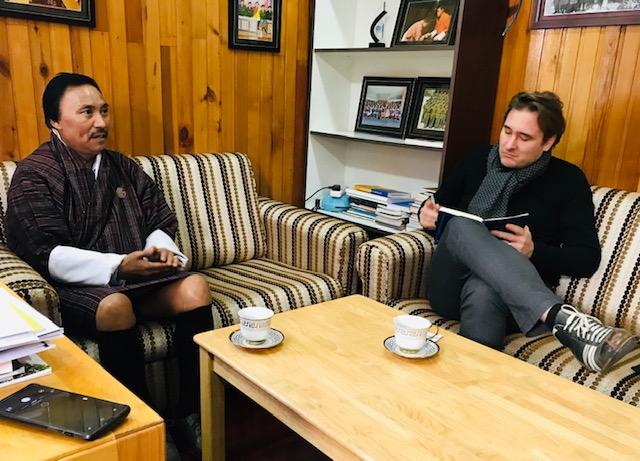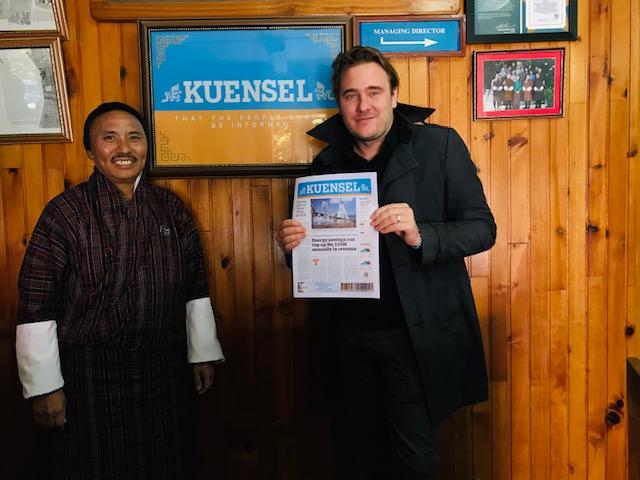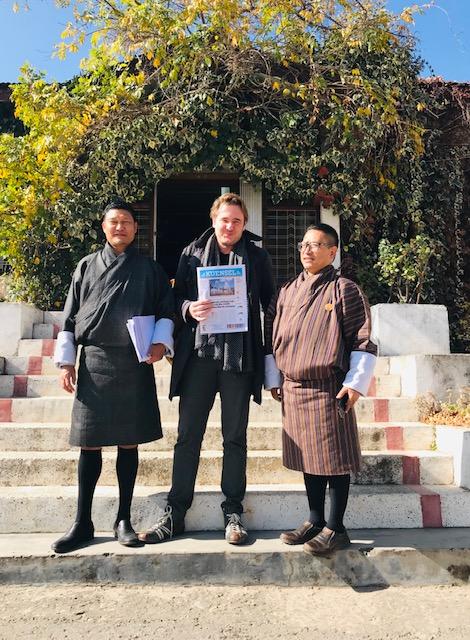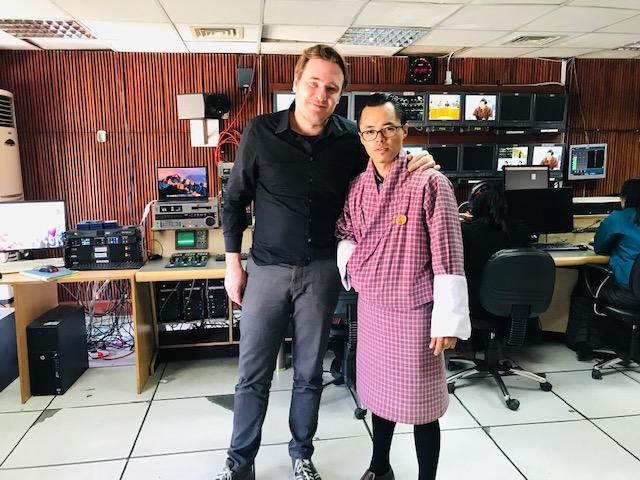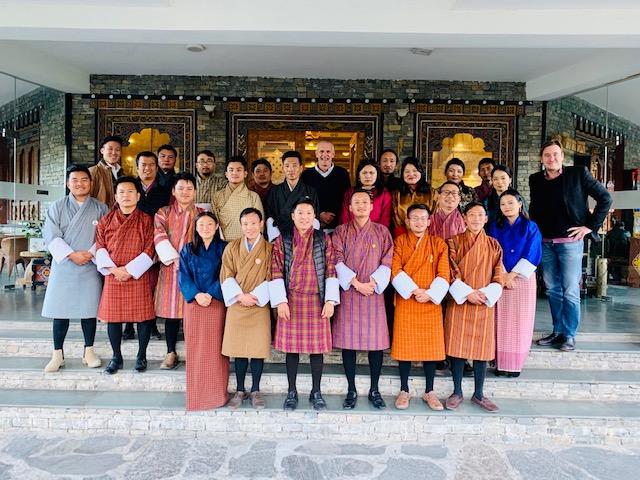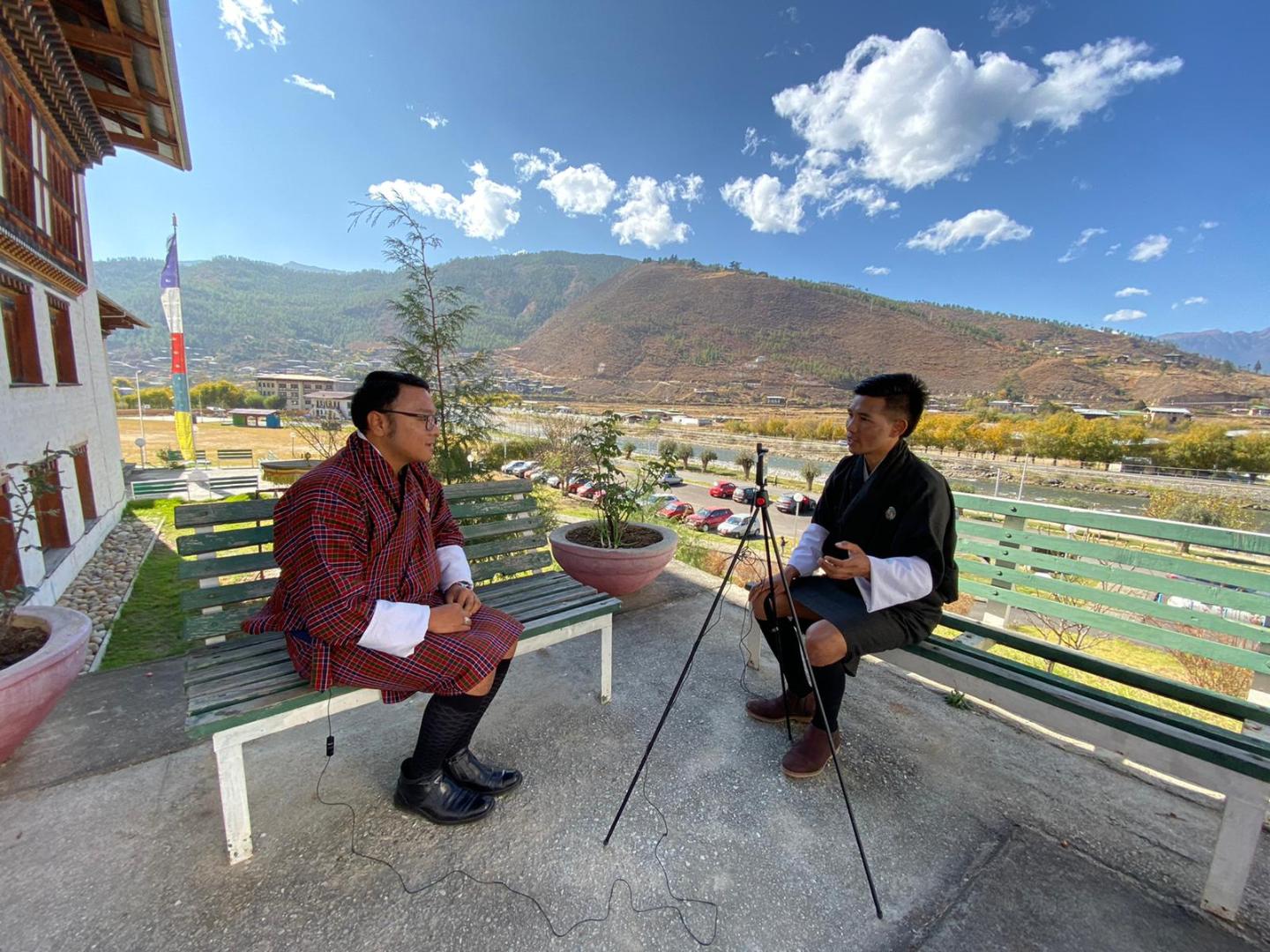Visiting the oldest newspaper in Bhutan is a journey into the past: Kuensel’s editorial building - Kuensel is translated as accuracy - is a small functional building, overgrown with ivy, on the edge of the main capital Thimphu. The interior walls are paneled with wood like an old fashioned clubhouse from the 70’s. There are still rotary phones inside. Strict-looking secretaries, their hair tied up in buns, putting their coffee cups on crochet doilies. Time passes by slowly as the sound of the printing press strikes in the adjacent building.
Up until twenty years ago, internet and television was prohibited in Bhutan. Mobile phones were only permitted and introduced in 2014. The kingdom has never seen the television era and entered directly into theage digitalisation. However, press freedom is constantly improving, despite this radical change and smaller setbacks. Bhutan ranks - for Asian standards incredibly good - in place as the 67th country regarding press freedom, according to the recently published ranking by Reporters without Borders. In 67th place, Bhutan comes first compared to other countries in South Asia and is therefore close to its neighbours South Korea (42), Taiwan (43) and Japan (66).
No democracy without press freedom - no press freedom without democracy
This year, the ranking will be criticised as in every year: Some believe that there is not enough data to measure press freedom objectively. It is seen as a “hit parade” created by the Westener’s raised index finger. This criticism is justified. However, it is hiding the fact that the ranking is mainly created to attract attention. It works with the interaction that cannot be emphasized enough in those difficult times for journalism: no democracy without press freedom - no press freedom without democracy.
Critical questions regarding malnutrition in some parts of the country, high youth unemployment or high alcohol consumption among the population were suddenly asked, albeit with caution. An important emancipation had taken place in the course of democratization: Away from the media's self-image, which is still widespread in Asia, as a submissive bearer of news that does not criticize the existing conditions towards the watchdog function of the press.
Questioning the narrative of the Himalaya idyll
Journalism bloomed incidentally along with the first free elections in Bhutan. At the same time, the narrative of the Himalaya idyll started being questioned in a critical way. Journalists wanted to know whether the Himalaya idyll is a narrative of the West that focuses on closeness to nature, yoga and well-being.
Critical questions regarding malnutrition in some parts of the country, high youth unemployment or high alcohol consumption among the population were suddenly asked, albeit with caution. An important emancipation had taken place in the course of democratization: Away from the media's self-image, which is still widespread in Asia, as a submissive bearer of news that does not criticize the existing conditions towards the watchdog function of the press.
Today - being on place 67 of 180! - there’s still room for improvement left. The most important newspaper Kuensel is still 51 percent state-owned. The only TV and broadcasting service in Bhutan, the Bhutan Broadcasting Service (BBS) is state-owned without legal protection of its editorial independence.
There is still no law regulating access to information. There are still too few well-trained journalists who can counter the disinformation in social networks with well-founded, value-based and content-responsive journalism. Namgay Zam, Executive Director of the Journalists’ Association of Bhutan (JAB) is a young journalist trained in the West who bluntly and loudly says what she thinks: “On the plus-side is a liberal government open to journalism and our king, who supports the development of a free media landscape. The biggest obstacle to press freedom is the difficult economic environment - in Bhutan and worldwide. ”
What is the world’s interest in journalism in Bhutan?
Pinched between the giants India and China, close to a border with Tibet, Bhutan is located in a geopolitically sensitive region. As a result, more and more governments in Asia are closely watching Bhutan go its own way, which is fundamentally different from its overpowering neighbors. Everything external, all mission awareness, the question of system competition: Bhutan closes these outward appearances with enchanting consequence and sets its own rules. Trade of tobacco is prohibited. The constitution stipulates that 60 percent of the area of the CO2-neutral country must be covered with trees. The gross national income is supplemented by the concept of gross national happiness.
At a time when Hindu nationalist forces are gaining more and more influence in India, China is making extensive claims not only economically but also in the area of soft power while Bhutan stands for a third, always unpretentious path.
This text is a translation. It has been first published April 2020 in German.



